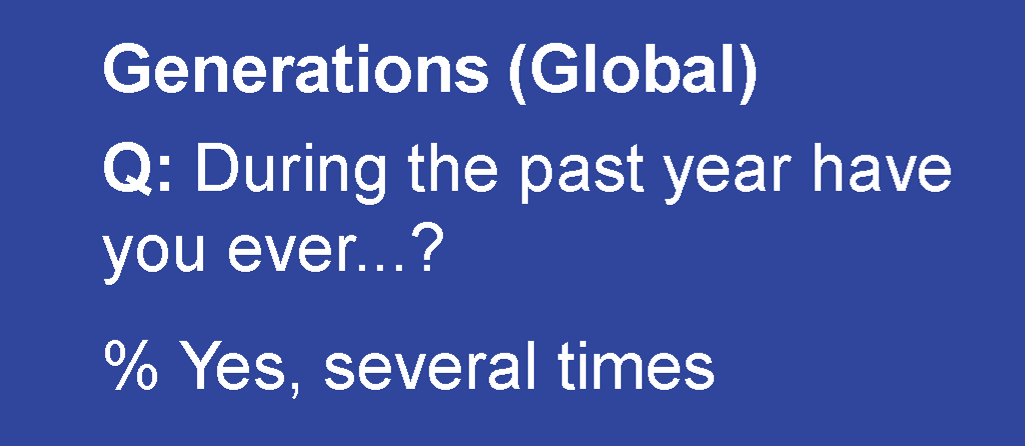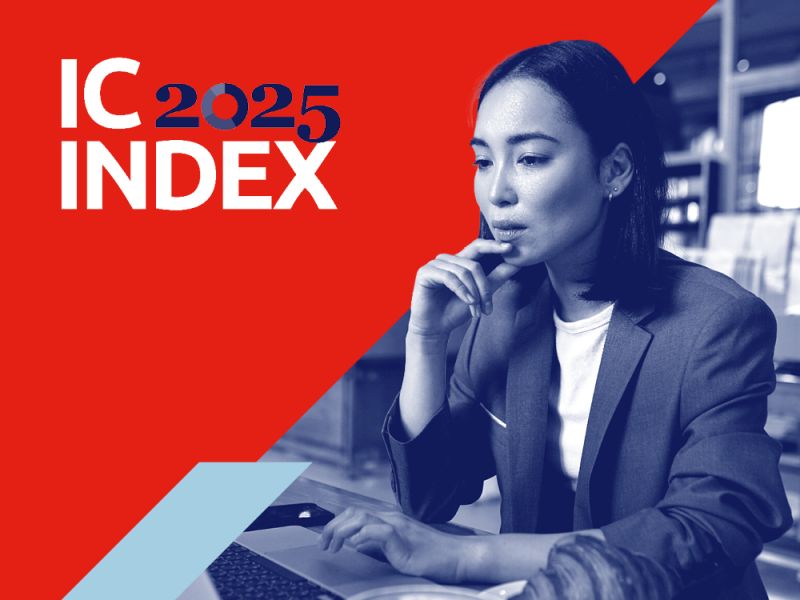Ipsos World Mental Health Day survey shows more than a third of employees (39%) across the world have had to take time off for stress in the past year.
- While UK employees are doing slightly better than the global average (35% vs 39%) – this research comes at a time that (according to the CIPD) UK workers are taking more sick days than at any point in the last decade.
Younger employees most impacted by stress.
- Across generations, Gen Z are the most likely to have had to take time off several times in the last year for stress (24%), followed by millennials (22%) and Gen X (17%). Baby boomers are the least like to report having to take time off, with 9% having done so several times.



While these levels of stress are high, they are stable.
- The proportion of employees saying they have had to take time off for stress didn’t change in 2023 vs 2022, but this shouldn’t make tackling stress any less of a priority for employers.
- With each successive generation much more likely to have to take time off for stress than the generation before, this looks like an issue that won’t go away on its own.
So, what can we do?
Our Consultant, Ruth Prowse, gives advice for employers on supporting positive wellbeing in the workplace:
Several factors can influence employees’ mental wellbeing – from opportunities for personal growth, fair pay, clarity on job roles to psychological safety and good working relationships.
However, there are tangible areas that organisations can start focusing on today that will help support employee wellbeing, including:
- Tackling the root causes of stress and strain at work. In our recent Making the Case for the Office report, nearly a quarter of UK office workers (23%) said the volume of workload stopped them doing their job effectively. By identifying the key drivers of strain through employee research and acting on them, employers can make a tangible difference.
- Understanding the impact of psychological safety, lack of trust in leaders or challenging organisational behaviours have on employee wellbeing. To uncover any root causes that are standing in the way, actively engaging in employee listening is essential.
- Organisational change can cause significant stress for employees. Equipping managers and leaders with the knowledge, tools and support to manage change well within their teams can help provide smoother and less stressful transition times.
Our Mental Health First Aider and Content Lead, Russ Thorne, provides some guidance for employees on dealing with stress:
Generally, we’re built to cope with short periods of stress – it can help us focus and get through challenges. But we also need time to rest and reset afterwards. When we have long term, chronic exposure to stress and no respite, it’s a recipe for all kinds of potential health issues.
As employees there are a couple of things we can all do to manage our stress levels. The first is to adopt habits that help reduce it. A lot of the time we know what we need – regular breaks, consistent exercise, time outdoors, and maybe most importantly of all, sleep! We’re not always good at making those things part of our routine, but those little actions can make such a big difference.
The second thing is to be aware of what stress feels like when it gets out of hand, so we can help ourselves and each other. Chronic stress shows up in all kinds of ways, including:
- Headaches
- Fatigue
- Digestive problems
- Muscle tension and pain
- A weakened immune system
It’s easy to dismiss these things as ‘feeling a bit run down,’ but taking early action can stop stress escalating. If you’re worried about stress, speak up. Talk to your doctor, call up a mental health first aider or wellbeing champion, speak to your manager or a colleague…there’s always someone you can talk to, and something you can do. Even if it doesn’t feel that way at first!
Unsure where to start with tackling stress in your organisation?
Ipsos Karian and Box offers a robust wellbeing audit and can help you to define a wellbeing strategy informed by best practice which takes into account your unique structure, processes, policies and culture to ensure you make the choices that will benefit your employees' wellbeing. Contact us now on ipsoskarianandbox@ipsos.com
Ipsos Karian and Box







